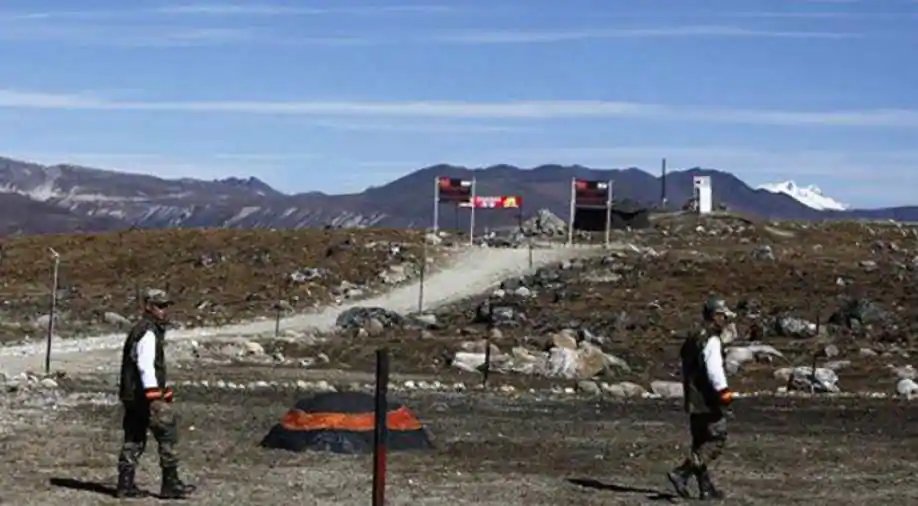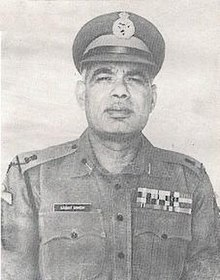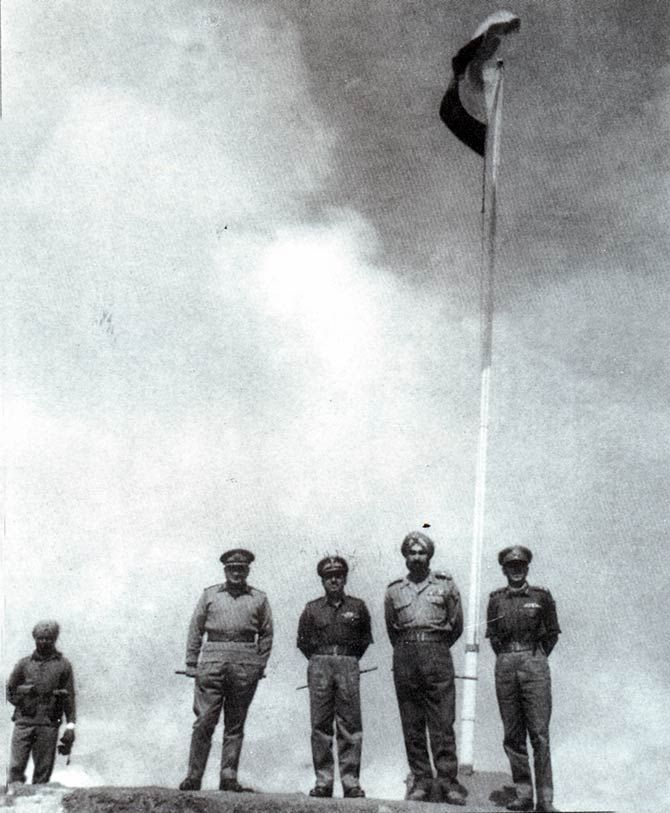Recently, @globaltimesnews's chief editor, who is some @HuXijin_GT boasted that the Chinese have access to all the resources at LAC, including piping hot food, while Indians have to face the triple trouble of cold canned food, the horrible cold of winters and COVID 19.
Interestingly, the nimby pamby Hu Xijin had the gall to post this on the same day, when our brave men in uniform had whacked his ancestors at Nathu La, 53 years ago...... https://twitter.com/HuXijin_GT/status/1304292033469661184
But what was this clash, and why China, who never ceases to remind us of the humiliating loss of 1962, develops cold feet at the mere mention of Nathu La and Cho La?
This is the tale of the untold victories, that were hidden from us for decades.
Much before offensive defense became the norm since 2016, it was in 1967, when India proved that our country is not some football to kick around at whim.
Much before offensive defense became the norm since 2016, it was in 1967, when India proved that our country is not some football to kick around at whim.
Cut to 1967 -
India had barely managed to recover from the double tragedy of losing one of the best Prime Ministers and one of the best scientists within a span of 13 days in 1966, when China was back to its old tricks again.
India had barely managed to recover from the double tragedy of losing one of the best Prime Ministers and one of the best scientists within a span of 13 days in 1966, when China was back to its old tricks again.
The battleground was Sikkim, which was then a princely state, sandwiched between a benevolent but hesitant India and a ruthless, arrogant China -
In those days, there was no fencing around the borders, especially at the Nathu La stretch. India and China were seperated by a string of pebbles.
Yes, mere pebbles demarcated the international border, which meant that China could kick them around at whim.
Yes, mere pebbles demarcated the international border, which meant that China could kick them around at whim.
Matters however came to the head during the 1965 Indo Pak War, when China threatened to open a third front. China issued an ultimatum to vacate Zelep La and Nathu La.
While the Indian forces vacated Zelep La, Nathu La had a stubborn commander at the helm...........
While the Indian forces vacated Zelep La, Nathu La had a stubborn commander at the helm...........
This commander was Major General Sagat Singh, who knew the significance of Nathu La, and how advantageous its features were for the Indian forces.
He simply refused to vacate this stretch, come what may, and that, set the course for an unsung, but historic battle -
He simply refused to vacate this stretch, come what may, and that, set the course for an unsung, but historic battle -
By 1967, China had made up their mind. They wanted to bulldoze India into giving up Sikkim, and further boost their imperialistic ego. Mao Zedong was at his peak then, and he thought that India would fall in line, just like they did in 1962.
Except that the Chinese dictator forgot one simple thing - India did not lose 1962 because the forces were weak, India lost because the forces had an incompetent PM and pathetic military commanders at the helm of affairs.
Moreover, India was now more prepared and confident, courtesy a whirlwind victory in the 1965 Indo Pak War, where India had almost reached the gates of Lahore and Sialkot, had an unwanted UN ceasefire not ruined the plans to liberate the same.
Moreover, Mao's forces also underestimated Indians in terms of mountain warfare.
How did they even expect to win against those folks who had whacked them with zero support at Rezang La, and crushed the Pakistani arrogance with some govt backing at Haji Pir?
How did they even expect to win against those folks who had whacked them with zero support at Rezang La, and crushed the Pakistani arrogance with some govt backing at Haji Pir?
Then, in September 1967, the D Day had arrived. Contrary to the foggy atmosphere in Nathu La, it was crystal clear on 11 September. Following several skirmishes, the Indian forces had decided to fence the international border.
The Chinese, without any doubt, hated this and intervened in the process. When the Chinese bullied the Indian commander, Lt. Col Rai Singh Yadav of 2 Grenadiers, the Indian forces, enraged by this arrogance, engaged into a violent scuffle.
This resulted in the spectacles of the Chinese Commissar being broken. The Chinese gave threatening references and went back, while the Indians continued to work. Little did the Indians know of the impending disaster that was coming their way.
A couple of minutes later, the Indians heard a murderous whistle, and all hell broke loose.
A whistle was blown from the Chinese side followed by medium machine gun firing against Indian troops from north shoulder -
A whistle was blown from the Chinese side followed by medium machine gun firing against Indian troops from north shoulder -
During the course of the battle, the Indians initially suffered a lot of casualties. Following the initial casualties, Major Harbhajan Singh of the Rajput Regiment and Captain Prithvi Singh Dagar of the Grenadiers regiment led a bold attack against the Chinese side.
The two managed to gain an upper hand, but sadly lost their lives in the same. While Major Harbhajan Singh was awarded posthumously with Maha Vir Chakra, India's 2nd highest wartime gallantry award, Captain Prithvi was awarded posthumously with Vir Chakra -
Following three days of heavy artillery pounding and machine gun firing, the Chinese forces declared ceasefire. While the Indian side had lost around 50 + soldiers, the Chinese forces had lost 120+ soldiers in the skirmish.
For his supreme conduct, Lt Col Rai Singh Yadav went on to receive the Maha Vir Chakra.
However, it seems like China never took the drubbing seriously, and they clashed at Cho La once again - https://tfipost.com/2019/09/exactly-on-this-day-52-years-ago-india-beat-the-chinese-black-and-blue-at-nathu-la-and-cho-la/
However, it seems like China never took the drubbing seriously, and they clashed at Cho La once again - https://tfipost.com/2019/09/exactly-on-this-day-52-years-ago-india-beat-the-chinese-black-and-blue-at-nathu-la-and-cho-la/
The drubbing at Cho La was way worse than what the Chinese had suffered at Nathu La. They retreated to a point that was 3 kilometers beyond the LAC, and till date, they have never dared to infiltrate from that point ever - https://www.thebetterindia.com/140563/paltan-jp-dutta-nathu-la-cho-la-indian-army/
So next time, when a Chinese wussy reminds you of 1962, just say,
"I like your drubbing of 1967 better!"
Seeing the way the Chinese are behaving, I now have deep respect for the Pakistani forces. They are anything but great, but still better than the Chinese wusses.
"I like your drubbing of 1967 better!"
Seeing the way the Chinese are behaving, I now have deep respect for the Pakistani forces. They are anything but great, but still better than the Chinese wusses.

 Read on Twitter
Read on Twitter








